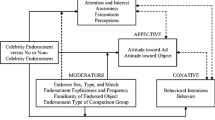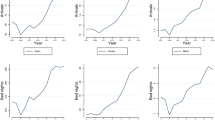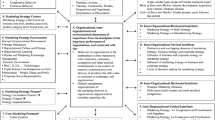Abstract
Product quality is often unobservable ex-ante and consumers rely on experts’ judgments, sometimes in the form of ratings or awards. Do awards affect consumers’ choices or, conversely, are they conferred on the most popular products? To disentangle this issue, we use data about the most important Italian literary prize, the “Strega Prize,” undertaking two different estimation strategies to evaluate the impact that winning the Prize has on book sales. First, we adopt a regression discontinuity design using a measure of book sales as a dependent variable and as a forcing variable (proxying for intrinsic book quality) the jury votes received by each nominated book in the competition. We find that the Strega Prize has a very strong impact on sales. Second, by using weekly data on appearances on bestseller lists, we estimate a difference-in-differences model in which we compare sales performance of treated and control books before the award is conferred with their respective performances afterward. The results confirm a huge influence of the Prize on book sales and show that most of the impact occurs in the weeks following the announcement of the Prize.


Similar content being viewed by others
Notes
As suggested by Akerlof (1970), “even the Nobel Prize, to some degree, serve this function of certification”.
The complete list of jury members is available at: www.fondazionebellonci.it/pdf/premiostrega_annuario2.pdf.
For example, in the 2012 Strega Prize competition, Alessandro Piperno won with 126 votes, while Emanuele Trevi was ranked second in the list with 124 votes and Gianrico Carofiglio arrived third with 119 votes.
Many of the best Italian writers have won the Strega Prize: they include Cesare Pavese, Primo Levi, Elsa Morante, Giuseppe Tomasi di Lampedusa, Alberto Moravia, Dino Buzzati, Natalia Ginzburg, Giovanni Arpino, Umberto Eco.
Other important Italian literary prizes are Campiello; Viareggio; Grinzane-Cavour; Bancarella, and Bagutta.
iPhone and Android Apps are also available to scan the barcode of books and catalog them directly.
The service currently has over 600,000 users worldwide.
Although, in principle, books could have been published since April of the previous year, in practice jury members tend to select books published in the first three months (January–March) of the current year in their presentations.
In a different context, Lee (2008), in his seminal work on RDD, uses a similar strategy to calculate the vote share for the Democratic Party to take into account the fact that more than two parties compete in elections.
However, we show in the appendix that results are quite similar when we include yearly fixed effects.
Typically, lists are not published in August and on some bank holidays.
We also observe the number of points assigned to books as a measure of sales: 100 points are assigned to the book with the greatest number of sales in a week, while the other titles in the list receive a number of points in proportion to the copies sold with respect to the first-ranked book. As a robustness check, in the Working Paper version (Ponzo and Scoppa 2013) we use the number of points accumulated as a bestseller as a dependent variable, obtaining very similar results.
The bestseller list for the week, e.g., between October 1 and 7, will be published in the newspaper 14 days after (on October 21), since some time is necessary for the data provider to gather all the raw data from bookshops, estimate the sales of books and build the rankings. In building Weeks as Bestseller, we take into account the week to which the bestseller list refers, not the date of publication of the newspaper.
The book “Il nome della rosa” (U. Eco) is clearly an outlier with its 240 weeks of presence. As we will show in the next section, our results are robust to the excluding of these observations from the sample.
Data from “Google Insights for Search” which report search volume patterns on Google for a given query for each week show that a considerable amount of attention is given to the “Strega Prize” in these three weeks of June.
Unfortunately, we do not observe the week (or the month) in which a book is published and we impute 0 for weeks in which the book has not yet been published.
References
Akerlof, G. (1970). The market for ‘lemons’: Quality uncertainty and the market mechanism. Quarterly Journal of Economics, 84(3), 488–500.
Angrist, J., & Pischke, J. (2009). Mostly harmless econometrics. Princeton: Princeton University Press.
Berger, J., Sorensen, A. T., & Rasmussen, S. J. (2010). Positive effects of negative publicity: When negative reviews increase sales. Marketing Science, 29(5), 815–827.
Chevalier, J., & Mayzlin, D. (2006). The effect of word of mouth on sales: Online book reviews. Journal of Marketing Research, 43(3), 345–354.
Deuchert, E., Adjamah, K., & Pauly, F. (2005). For oscar glory or oscar money? Journal of Cultural Economics, 29, 159–176.
Elliott, C., & Simmons, R. (2008). Determinants of UK box office success. The impact of quality signals. Review of Industrial Organization, 33, 93–111.
Friberg, R., & Gronqvist, E. (2012). Do expert reviews affect the demand for wine? American Economic Journal: Applied Economics, 4(1), 193–211.
Ginsburgh, V. (2003). Awards, success and aesthetic quality in the arts. Journal of Economic Perspectives, 17(2), 99–111.
Ginsburgh, V., & van Ours, J. (2003). Expert opinion and compensation. Evidence from a musical competition. American Economic Review, 93(1), 289–296.
Hadj Ali, H., Lecocq, S., & Visser, M. (2008). The impact of gurus: Parker grades and en primeur wine prices. Economic Journal, 118(529), F158–F173.
Hilger, J., Rafert, G., & Villas-Boas, S. (2011). Expert opinion and the demand for experience goods: An experimental approach in the retail wine market. Review of Economics and Statistics, 93(4), 1289–1296.
Imbens, G., & Lemieux, T. (2008). Regression discontinuity designs: A guide to practice. Journal of Econometrics, 142(2), 615–635.
Lee, D. (2008). Randomized experiments from non-random selection in US House elections. Journal of Econometrics, 142(2), 675–697.
Lee, D., & Lemieux, T. (2010). Regression discontinuity designs in economics. Journal of Economic Literature, 48, 281–355.
Nelson, P. (1970). Information and consumer behavior. Journal of Political Economy, 78, 311–329.
Nelson, R., Donihue, M., Waldman, D., & Wheaton, C. (2001). What’s an oscar worth? Economic Inquiry, 39(1), 1–16.
Ponzo, M. and Scoppa, V. (2013). Experts’ awards and economic success: Evidence from an Italian literary prize, CSEF Working Paper 335, June.
Reinstein, D., & Snyder, C. (2005). The influence of expert reviews on consumer demand for experience goods: A case study of movie critics. Journal of Industrial Economics, 53(1), 27–51.
Sorensen, A. (2007). Bestseller lists and product variety. Journal of Industrial Economics, 55(4), 715–738.
Acknowledgments
We are grateful to the “Fondazione Maria e Goffredo Bellonci” who kindly provided detailed data on the jury votes obtained by each book in the “Strega Prize” competition and for information available on the website www.fondazionebellonci.it/premio-strega/vincitori.htm. Special thanks go to Stefano Petrocchi and Carmen Novella from the Fondazione Bellonci. We would like to thank two anonymous referees, Sergio Beraldo, Guido de Blasio, Maria De Paola, Federica Demaria Sarah Draus, Sabrina Giordano, Tullio Jappelli, Marco Leonardi, Ornella Wanda Maietta, Silvia Marchesi, Marco Pagano, Marco Sisti, Daniela Vuri and seminar participants to the SIE Conference, University of Ancona and University of Calabria for useful comments and suggestions.
Author information
Authors and Affiliations
Corresponding author
Appendix: other robustness checks for the RDD
Appendix: other robustness checks for the RDD
In this appendix, we carry out further robustness checks. We re-estimate the specifications of Table 2 (column 6) by including a number of additional controls. In column (1), we include publisher fixed effects (147 dummies). In column (2), we include 66 year dummies. In column (3), standard errors are robust to clustering at the competition level. In column (4), we control for a dummy equal to one if the book was published in the year previous to the year of competition. In column (5), we focus on just the most recent years (2000–2012). In column (6), we use a quantile regression in order to reduce the impact of outliers. In column (7), we exclude books published by Rizzoli from our sample, since this variable turns out to be imbalanced (see Table 6, column 2). In all these regressions, our results are widely confirmed.
Rights and permissions
About this article
Cite this article
Ponzo, M., Scoppa, V. Experts’ awards and economic success: evidence from an Italian literary prize. J Cult Econ 39, 341–367 (2015). https://doi.org/10.1007/s10824-015-9239-4
Received:
Accepted:
Published:
Issue Date:
DOI: https://doi.org/10.1007/s10824-015-9239-4
Keywords
- Cultural economics
- Awards
- Literary prize
- Book sales
- Product quality
- Regression discontinuity design
- Difference-in-differences model





